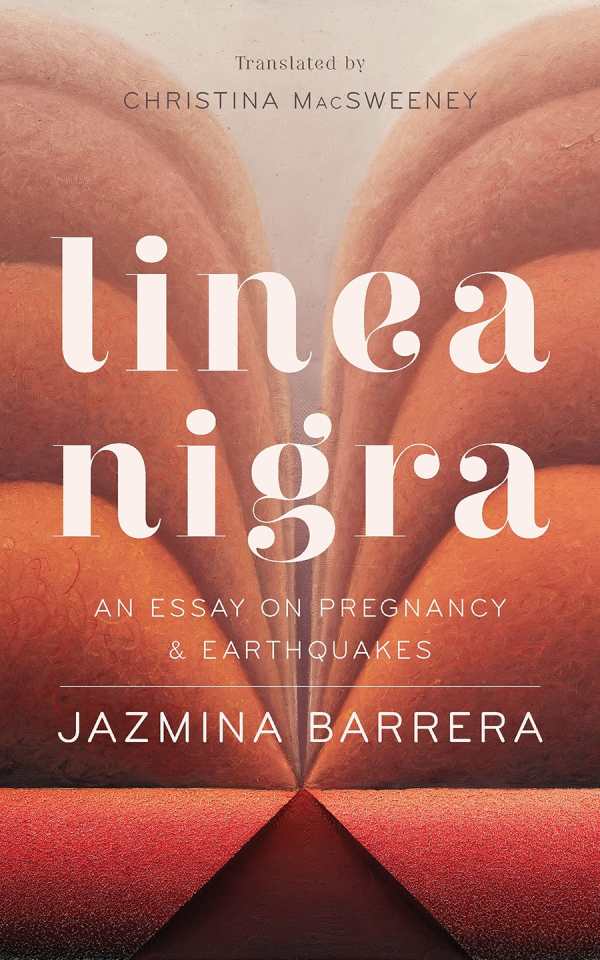Linea Nigra
An Essay on Pregnancy & Earthquakes
In Linea Nigra, a fragmentary work of cultural commentary, Jazmina Barrera investigates pregnancy as both a physical reality and a liminal state.
The linea nigra, a stripe of dark hair down a pregnant woman’s belly, is a potent metaphor for Barrera’s matriarchal line: her grandmother was a doula; her mother is a painter. In short passages that dart between topics, Barrera muses on motherhood, monitors her health, and recounts her dreams. She is dutiful in attending doctor appointments and birthing classes, but has to switch hospitals at the last minute. An earthquake in Mexico City, and her mother’s ovarian tumor, are additional unwanted disruptions.
Is pregnancy magical or alien? Illness or blessing? These questions animate the first part of the work, as Barrera writes her way through nausea and ponders baby names like Mar (Spanish for “sea”). She frees her mind to wander by association, considering Mayan superstitions and animal instincts and taking inspiration from Frida Kahlo and Indigenous model Luz Jiménez, who exemplify the visceral fear and iconic allure of motherhood.
Barrera’s son Silvestre is born halfway through the book. She gives impressionistic memories of the delivery and chronicles her attempts to write while someone else watches the baby. A family story haunts her: her uncle, Rodrigo, killed at age five on a street corner by a drunk driver, appears to her now as a ghost—the embodiment of her new fears for her son.
The text is a placeholder for the “counter-canon” books by women that Barrera wishes were more available. “I look for texts on pregnancy as if they were travel guides,” she remarks early on. In an appendix, she lists motherhood-themed books that she read while breastfeeding.
Linea Nigra is both a diary and philosophical appeal for pregnancy and motherhood to become subjects for serious literature.
Reviewed by
Rebecca Foster
Disclosure: This article is not an endorsement, but a review. The publisher of this book provided free copies of the book to have their book reviewed by a professional reviewer. No fee was paid by the publisher for this review. Foreword Reviews only recommends books that we love. Foreword Magazine, Inc. is disclosing this in accordance with the Federal Trade Commission’s 16 CFR, Part 255.

